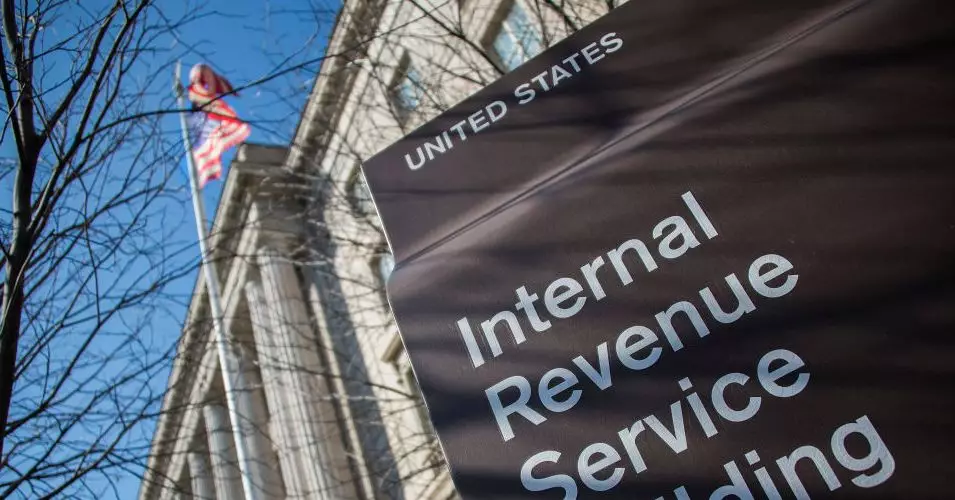In an age where data reigns supreme, the efforts undertaken by Palantir Technologies in collaboration with Elon Musk’s ambitious Department of Government Efficiency (DOGE) are nothing short of revolutionary. The initiative, aimed at developing a sophisticated “mega API” for optimizing access to Internal Revenue Service (IRS) records, marks a pivotal moment in the intersection of technology and governmental operations. This endeavor is significant not merely for the tools being used but for the paradigm shift it signals in how we think about government efficiency and data accessibility.
The modern IRS, historically viewed as a bureaucratic maze, stands on the brink of transformation. With advanced application programming interfaces (APIs) being integrated into their systems, the potential to streamline operations and enhance taxpayer service is palpable. As we delve deeper into the implications of this project, it becomes crucial to understand the underlying technology and its far-reaching impacts.
The Role of Palantir and Its Proficiencies
Palantir, co-founded by Peter Thiel, has carved out a niche in software solutions for government agencies and enterprise-level operations. The company’s Foundry platform, fundamental to this IRS initiative, offers a remarkable capacity for organizing and analyzing vast data sets. With the promise of turning the IRS’s convoluted records into easily navigable databases, Foundry’s abilities stand at the forefront of technological innovation.
The collaboration involves not just software but a concerted effort to create a flexible and interoperable data landscape. By building an API layer that encompasses all IRS databases, this initiative promises to enhance the quality of analysis and oversight within the organization. This digital backbone enables users to interface with IRS data not only for retrieval but also for comparative analysis alongside other governmental datasets, which could lead to unprecedented insights and operational efficiency.
Concerns About Data Privacy and Access
While the benefits of this project are enticing, the implications of centralizing taxpayer data and its accessibility raise valid concerns. The idea that sensitive information—including names, social security numbers, and financial histories—could potentially be accessible through a unified platform shared by multiple users warrants scrutiny. Who retains access, and what mechanisms ensure the sanctity of that data? These are questions that must be addressed as the project progresses.
The ambition to make Foundry the “read center of all IRS systems” introduces another dimension to the discussion—potential user empowerment versus the risks of bureaucratic overreach. Confidence from the engineering team that this API could be completed within a mere 30 days hints at both an exciting technological frontier and the urgent need for robust data governance structures.
The Broader Implications of Governmental-Tech Partnerships
The collaboration between DOGE and Palantir extends beyond the IRS, reflecting a broader trend of governmental agencies leveraging private sector innovations to enhance efficiency. As Palantir strengthens its foothold by obtaining lucrative government contracts, its influence in shaping the future of public data management is profound. This evolving relationship poses a significant commentary on how private entities can drive public service reform.
However, it is essential to mediate this enthusiasm with a healthy skepticism regarding the motives of tech companies in government. Are these partnerships genuinely for the public good, or are they paving the way for profit-driven privatization of public services? As former Palantir employees ascend to pivotal roles within government IT departments, the lines between private interests and public service appear increasingly blurred.
The “‘Hackathon’ Effect: Innovation Through Collaboration
The recent hackathon event organized by DOGE in Washington, D.C., epitomizes this collaborative spirit. Although described as largely unstructured, such environments often catalyze creativity and agile problem-solving. As engineers mingled and brainstormed strategies, the ethos of innovation and rapid iteration underscored the event.
Yet, there’s an underlying concern about what a “hackathon” signifies for the serious nature of tax data and citizen privacy. The casual atmosphere contrasts sharply with the weighty responsibility of handling sensitive financial information. Balancing innovation with due diligence must remain a priority as these partnerships evolve.
The movement toward a cohesive API for IRS data not only showcases technological advancements but also illuminates the complexities of merging efficiency with ethics in governmental operations. The Palantir-DOGE initiative stands as a beacon of potential transformation, heralding a new chapter in data access and management, while also demanding vigilance in ensuring that progress does not compromise the very citizens it aims to serve.

